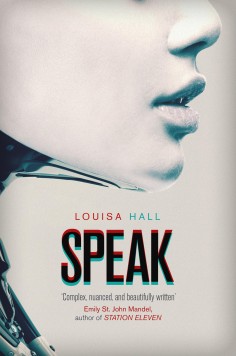Book review: Speak - complex meditation on our longing for love
Like David Mitchell's Cloud Atlas, Speak has a theme which, if you state it too plainly, begins to sound a bit self-help: we are all lonely, we all need to feel connected and understood


Louisa Hall's Speak is an intelligent and absorbing look at our secret. You could be forgiven, at first, for taking it for a dystopian novel. It shows us a future circa 2040 where humanity has just fought off a serious addiction to robots. Babybots, as these doll-like things are called, are already on their way to obsolescence in vast warehouses as the book opens. They have been confiscated from the children who adored them, left to run their algorithms only for their own benefit as their power cells gradually run down. "In memory, though not in experience, I have lived across centuries," one tells us, en route to oblivion. "I lay in one child's arms. She said my name and I answered."
But though babybots speak in the cadences of lesser gods, in Hall's imagined world they aren't villains. Their programmed consciousness - if you can call it consciousness, an open question for everyone in this book - is instead the culmination of a human longing for love and connection that stretches across centuries. This longing has roots way back in the diary of a 17th-century Englishwoman named Mary Bradford who was sent off to America. It also governed the life of Alan Turing, represented here in (fictional) letters to the mother of his childhood love, Christopher Morcom. We also meet the Dettmans, a couple who become involved, and then disenchanted, in the gradual, decades-long programming of MARY, the computer program that a man will eventually refine into the MARY3 script of the dolls. The last of the book's characters is a paralysed young girl named Gaby, who comes to us by way of trial transcripts.
If this is beginning to sound very much like a David Mitchell novel, well, yes, Speak does owe a heavy debt to him, and not just in its puzzle-piece construction. Like Cloud Atlas, Speak has a theme which, if you state it too plainly, begins to sound a bit self-help: we are all lonely, we all need to feel connected and understood. If we can't get that through interactions with other people, we will seek it out any way we can.
Given that contemporary novelists can be a bit down at the mouth about technology, Hall's gentler view can be a welcome qualifier. But there is something missing here: power. No one seems interested in technology as a means of control. Regardless, Speak is a hypnotic read, and while you're in its grip, the thinness of its philosophy won't bother you much.